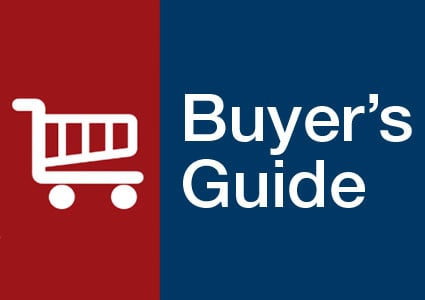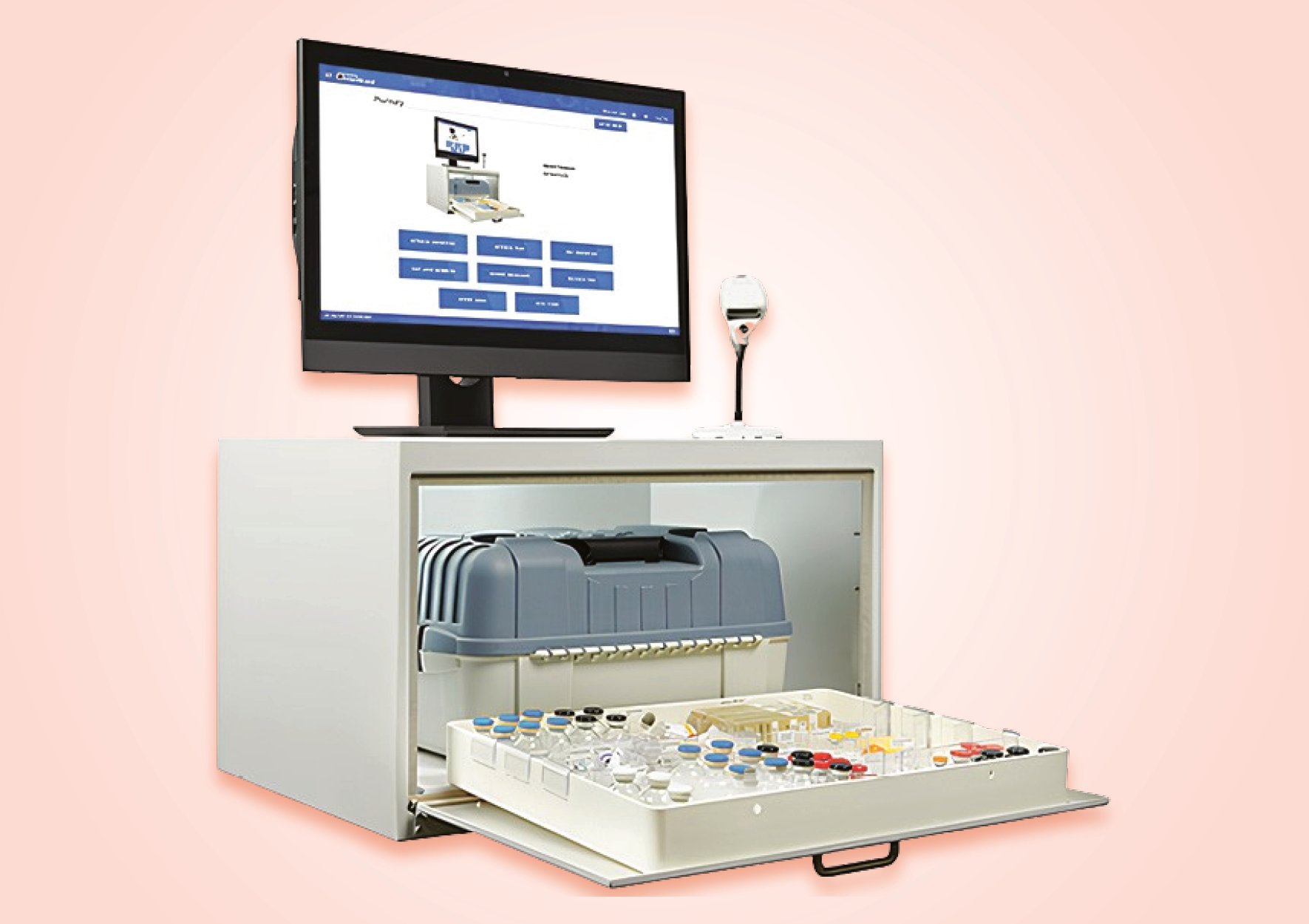- Show Menu
- Contact Us
- FAQs
- Reader Service
- Survey Data
- Survey Winners
- Testimonials
- Upcoming Events
- Webinars
- White Papers
Outsourced Compounding
With the myriad of issues related to USP <797> facing pharmacists today, we need to look at a multitude of solutions to bring our institutions into full compliance, including building new cleanrooms, hiring more staff, using premixed IV products, and outsourcing our compounding operations. Outsourcing sterile IV product preparation allows pharmacies to reallocate their resources to other areas of need.
What Products Should You Outsource?
Outsourcing is a viable option for IV products when the pricing is reasonable and the beyond-use and/or stability dating offered by the service provider meets your institutional needs and is supported by sufficient data. Outsourcing also makes sense for high-volume items in standardized dosage forms, such as magnesium sulfate, oxytocin, and calcium gluconate. Pharmacies may find it beneficial to outsource items such as patient controlled analgesia (PCA) cartridges if their service provider is able to provide adequate beyond-use dating, allowing them to minimize the expense associated with high-cost IV waste. Epidural solutions, such as fentanyl, hydromorphone, and bupivicaine, are also good candidates for outsourcing because of standard concentrations, excellent beyond-use dating, and the relatively minimal fluctuation in usage for most hospitals.
Taking Costs Into Consideration
Determining your cost threshold for outsourcing will depend on a variety of factors. At first glance, outsourced products appear to cost more than the products you make in your own facility. However, it is important to take a closer look at the total cost for compounding your own products. First, calculate the costs of the drug product, the mini-bag, the diluent (if needed), the needles and syringes, and labeling supplies needed to prepare that dose. Second, prorate any costs associated with the use of high-speed pumps or any automated compounding equipment and sets. Third, add in the costs associated with technician and pharmacist labor. To truly calculate your fully loaded costs you would need to include indirect costs, such as the electricity to run your compounding equipment and engineering controls. This last set of costs can be difficult to quantify. Therefore, most pharmacies can simply compare the outsourcer’s per-unit price to the costs associated with their direct costs, and then decide if the outsourcer’s price is acceptable.
It may make the most sense to analyze the price of outsourcing on a case-by-case basis. For instance, to outsource a product that you only use 1,000 units of annually for a $2 premium per dose, you will only spend an additional $2,000. That small, incremental expense may make it worthwhile, as it will allow your staff to focus their compounding efforts elsewhere. On the other hand, if an outsourcer is charging you a $2 premium on a product for which you use 60,000 units annually, you may be less inclined to incur that $120,000 in additional costs.
That said, the labor off-set realized by outsourcing can be of significant value to your pharmacy. For instance, if you are attempting to expand your pharmacy IV admixture program without adding additional human resources, outsourcing enough of your compounding volume may allow you to allocate existing staff to achieve this goal.
In short, there are many factors to take into consideration when comparing costs related to outsourcing, and it is prudent to make these evaluations on a specific, case-by-case basis.
Selecting an Outsourced Compounding Service Provider
As pharmacy directors, we are responsible for making decisions that provide our patients with high-quality, contaminate-free IV products – even if we are not compounding them in our facilities. To do so, we need to truly understand the quality of the services provided by our outsourced compounding vendors.
On-Site Audits and Quality Checks
Before purchasing outsourced sterile products from a vendor, you need to assess the vendor’s capabilities to provide high-quality sterile compounding services. Ideally, the vendor would be an FDA-licensed facility. However, we should not fall into the trap of assuming that, just because a vendor is registered with the FDA, they automatically will provide quality products. It is highly recommended that pharmacy directors conduct on-site audits of all service providers with whom you work. The importance of on-site visits cannot be overstated. In your role as pharmacy director, you must assure that any outsourced sterile products are prepared in the way you would want it done in your own institution and in full compliance with USP <797> regulations.
A senior member of the pharmacy staff, who has expertise in sterile compounding and detailed knowledge of USP <797>, should evaluate the outsourcer’s facilities in terms of regulatory compliance and sterile products competencies. Tour the facility and meet their pharmacists and technicians. Ask to see their licenses and certifications, their cleanroom and laminar flow hood certification and maintenance records, as well as their competency assessment and training programs for pharmacists and technicians. Request batch records for the products you are interested in and review their quantitative and qualitative data focusing on stability, sterility, and pyrogenicity. Look at their beyond-use dating policies and support data. Compare their compounding policies and procedures to your own to ensure they meet or exceed the standards you have set for compounding in your facility. In addition, you should conduct reference checks and talk to your colleagues about their institution’s experience working with the vendor under consideration. Ask specific questions about the quality of the products provided, service support, and any issues or problems that they may have encountered with the vendor. Finally, you need to do your homework and check with the FDA to make sure no cease-and-desist letters or product recalls have been issued to the outsource vendor.
Logistical Concerns
In selecting an outsourced compounding service provider, it is also necessary to consider logistics. For example, determine if the compounding facility’s location, in relation to your hospital, will allow for the timely delivery of compounded products. If you order the product today, will it arrive tomorrow – or three days from now? Depending on the product’s beyond-use dating, it may not be wise to lose a day or two due to shipping. In addition, if you plan to outsource controlled substances, find out if your outsourcer uses electronic processing of DEA 222 forms. A manual process can add time to the order turnaround.
Bar Coding Capabilities
If your facility is performing bar coded medication administration (BCMA), you should evaluate the vendor’s bar coding capabilities. Can the vendor provide bar codes that will meet your institution’s needs? Keep in mind that some vendors can produce a variety of bar codes, and some cannot. In addition, some vendors will even customize bar codes to meet your needs, by including data such as lot numbers, expiration dates, and product identification numbers in two-dimensional bar codes.
Product Labeling
The outsourcer you select must be able to provide a label that meets the needs of your pharmacy and nursing staff. Obtain samples from the vendors under consideration and ask your staff for input. If the labels contain bar codes, test their readability with your facility’s bar code scanners to ensure they are compatible with your BCMA and EMAR systems.
In general, your outsourcer should be able to provide auxiliary warning labels, as required by your institution. For example, your facility may want to distinguish central and peripheral IV mixes, and your vendor should be able to come up with a cautionary label to alert your nurses to the difference between the formulations. The last thing you want to do is add labeling to products made by your outsourcer. So be sure to clearly define your labeling needs upfront to avoid such issues.
What Reports Should You Ask For?
Once you have selected an outsourcer, it is necessary to regularly review data to ensure the quality of the products they provide. Ask your vendor to provide a monthly or quarterly quality report that includes data specific to the products you purchased. This report would include: sterility testing reports, batch certification reports, competency assessment reports, environmental monitoring reports, and certification reports for their cleanrooms and laminar airflow workstations. Recently, in evaluating one service provider, we at Brigham and Women’s Hospital asked the vendor to supply definitive proof that their sterility testing program would be able to detect a contaminated product. While they did not have that data readily available, they were able to provide it to us within one day. We ultimately found that their process was acceptable. Any qualified vendor should be more than willing to provide you with the data you request.
Inventory Management
Be sure to effectively track your IV product inventory to ensure that it meets your established par levels and that drug shortages do not occur. It is also necessary to pay close attention to beyond-use dating and to recycle doses nearing their expiration to higher-volume nursing units. Identifying and tracking product expiration dates is crucial to ensuring that you can remove expired doses from your inventory in the pharmacy and on the nursing units. Pharmacy managers should regularly evaluate inventory and make necessary changes to orders for outsourced compounded products.
When Should You Work With More Than One Vendor?
Unfortunately, it is rare that we will be able to get all of the products we need from one outsourced compounding service provider, thus requiring us to work with multiple vendors. However, consider outsourcing the bulk of your proucts to one vendor to earn volume discounts and to minimize the amount of monitoring you have to perform to ensure the quality of your IV products.
On the other hand, there are possible advantages to working with more than one vendor. Some vendors may provide longer beyond-use dating than others for the same product, and some vendors may provide selected products at a substantially lower price. Pharmacy managers need to evaluate both price and beyond-use dating carefully before making a final decision.
Conclusion
The decision to purchase outsourced sterile products cannot be taken lightly. Managers must carefully examine a vendor’s product selection and quality, service and customization, delivery methods, and pricing, as well as their ability and willingness to provide quality data, before entering into a business relationship. n
William W. Churchill, RPh, MS, received a BS in pharmacy and a master’s of science in hospital
pharmacy from Northeastern University’s College of Pharmacy and Allied Health, and earned a certificate in health care management from Boston University’s Graduate School of Management. In addition to serving as the executive director of pharmacy services for Boston’s Brigham and Women’s Hospital, Churchill is also a clinical professor of pharmacy practice at Northeastern University’s Bouve College of Health Sciences. He has worked for Brigham and Women’s since 1975. Among other distinctions, he has been honored with the 2002 ISMP Safe Medication Practices Cheers Award and,
most recently, the 2007 ASHP Distinguished Leadership Award. Churchill is also a member of Pharmacy Purchasing & Products magazine’s editorial advisory board.
Like what you've read? Please log in or create a free account to enjoy more of what www.pppmag.com has to offer.








